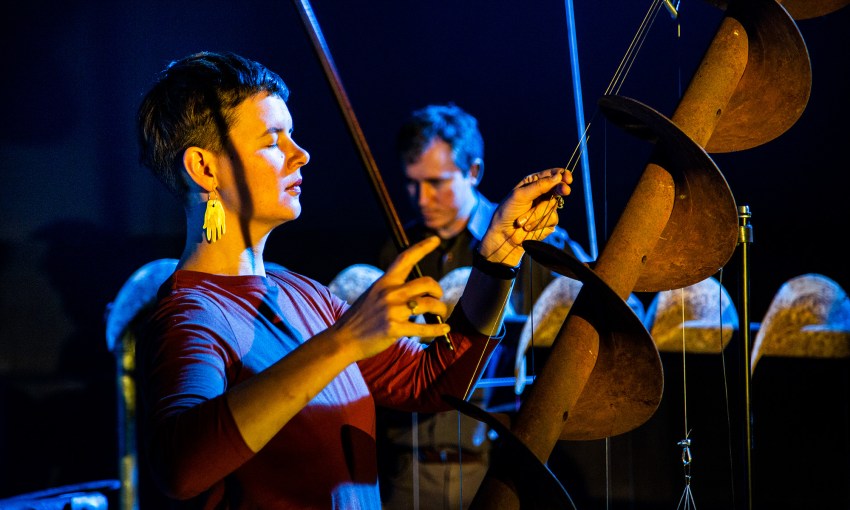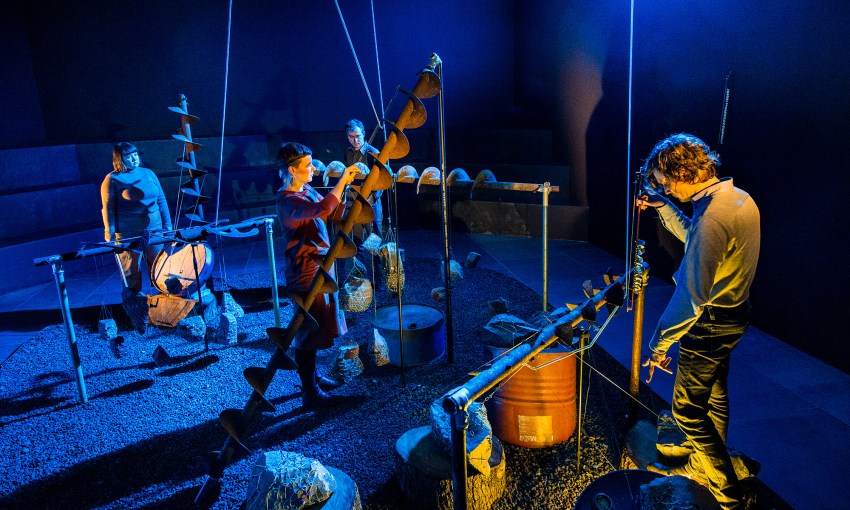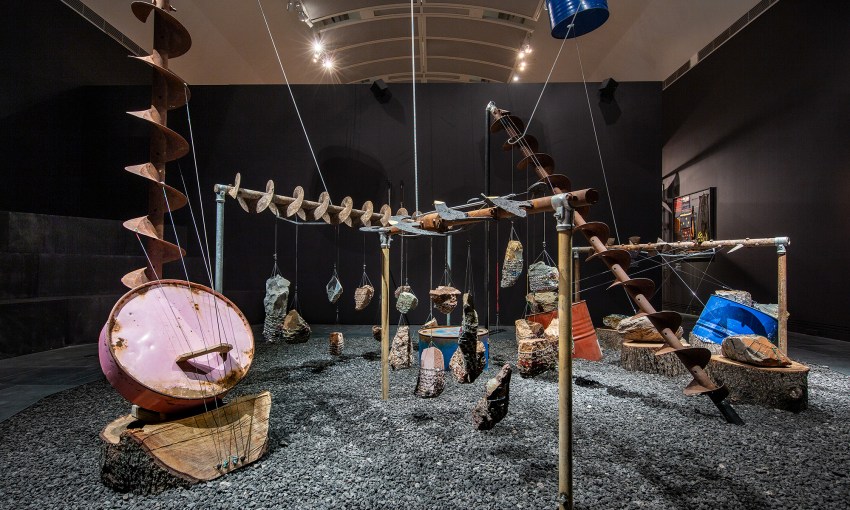In 'Untitled (death song)', part of AGSA's 'Monster Theatres', Indigenous artist Megan Cope has created an ugly but necessary song of ruin.
Megan Cope’s decaying orchestra offers a warning for Australia’s future
When Rio Tinto blew up the 46,000-year-old Juukan Gorge rock shelters in the Pilbara in May, the traditional owners of the land, the Puutu Kunti Kurrama people, told the ABC they were in mourning.
They were “deeply troubled and saddened” by the mining megacorp’s act of destroying this place of significance, severing a millennia-long tether to the land and their past.
A recorded version of ‘Untitled (Death Song)’ is available on the AGSA website.
Click here for more info.
InDaily interviewed Monster Theatres curator Leigh Robb about the Biennial. Read it here.
Megan Cope’s work ‘Untitled (Death Song)’ captures this pain – but also extends beyond it.
“People say ‘Wow, it’s like you predicted Rio Tinto,’” Megan tells CityMag, “but colonialism is predictable. It’s predictable because it’s violent.”
The Quandamooka woman and artist responded to the 2020 Adelaide Biennial of Australian Art Monster Theatres theme with ‘Untitled (Death Song)’, a piece that is an extension of a previous work, ‘Old Kahibah’, but with a new twist.
It invites “people to listen to country, listen to the land,” Megan says – and not figuratively.
“I thought, ‘How do I do that as an artist?’ I’ll make an instrument that incorporates timber and rocks,” she explains.
‘Untitled (Death Song)’ is a sound performance and visual sculpture, made from oil drums, rocks, and steel strings. Without musicians, the structures resemble long-lost relics from a Mad Max wasteland. But once played by musicians, these machines produce a coo that mimics the call of the curlew – a bird often understood to be a harbinger of death in Indigenous storytelling.
Megan, who now lives and works in Melbourne, contacted Liquid Architecture – a decades-old collective that promotes sound art – to find Adelaidean musicians to play the instruments live for the Biennial, which opened in February but closed temporarily due to the coronavirus.
Folk musician Naomi Keyte, former Ancient World venue owner Brad Cameron, and experimental musos Georgia Oatley and David Harry learned the score, composed by Isha Ram Das, and rehearsed over three weeks, expecting to eventually play live.
Due to COVID restrictions, the performance was put on hold.
Megan and AGSA contemporary curator Leigh Robb decided it would be best to record and release the work, rather than hold out for a live performance.
The recording was debuted on Friday, 3 July via the Art Gallery of South Australia’s website.
Megan says audiences should listen, “if they can,” to the call of the curlew and the musicians.
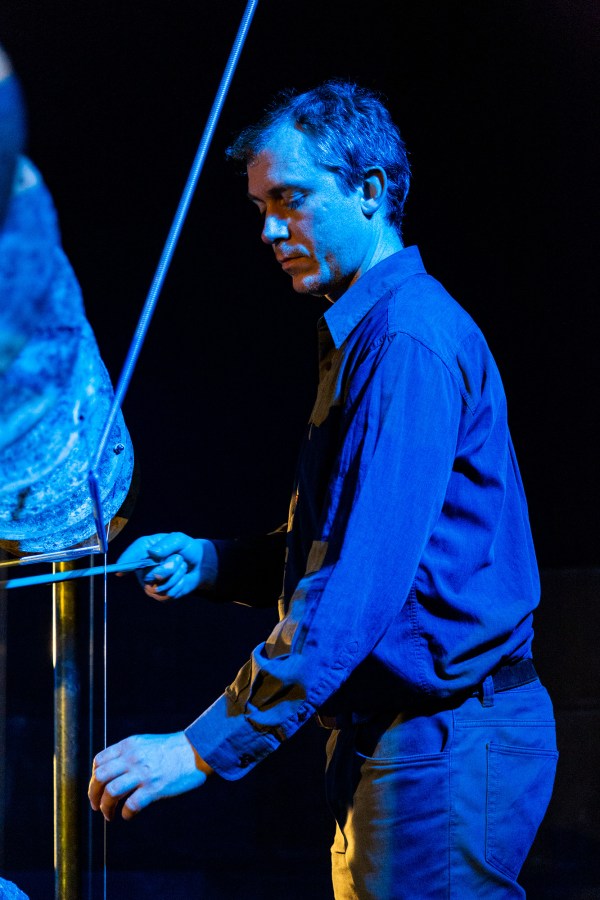
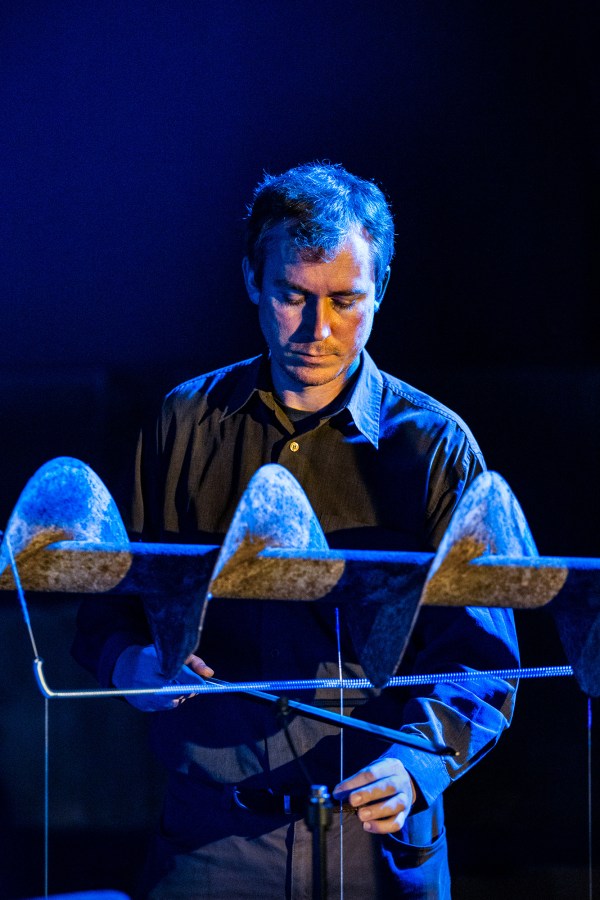
Above and right: Musician Brad Cameron playing the drill (?)
Brad, who is a guitarist, told CityMag it took time to understand how to play his instrument – which looks, in our best approximation, like a stringed drill.
“Even though there are a lot of similarities to traditional instruments, they are also quite different and so unique,” he says.
“It was very collaborative, and we really listened to each other and paid a lot of attention to how each other sounded and how we sounded together.”
CitMag was invited to view the rehearsal of ‘Untitled (Death Song)’ and found it meditative – until it became grotesque.
We’re sucked into the repetitive twangs crying from the stringed instruments. Our attention then turns to the mechanical makings of this soundscape – decaying and decrepit oil barrels, hunks of rock encased in what looked like barbed wire. Does the end justify the means?
This hierarchy, where an end product is deemed more valuable than the harm caused in the process of creation, is something Megan criticises, especially in relation to how capitalism impacts First Nations people.
“The relationship we have with capitalism is both the greatest and the worst thing simultaneously,” she says.
“It’s like knowing what you bought, that makes you feel good… may have been produced in a factory complicit in slavery. [I explore] those sorts of ugly juxtapositions.”
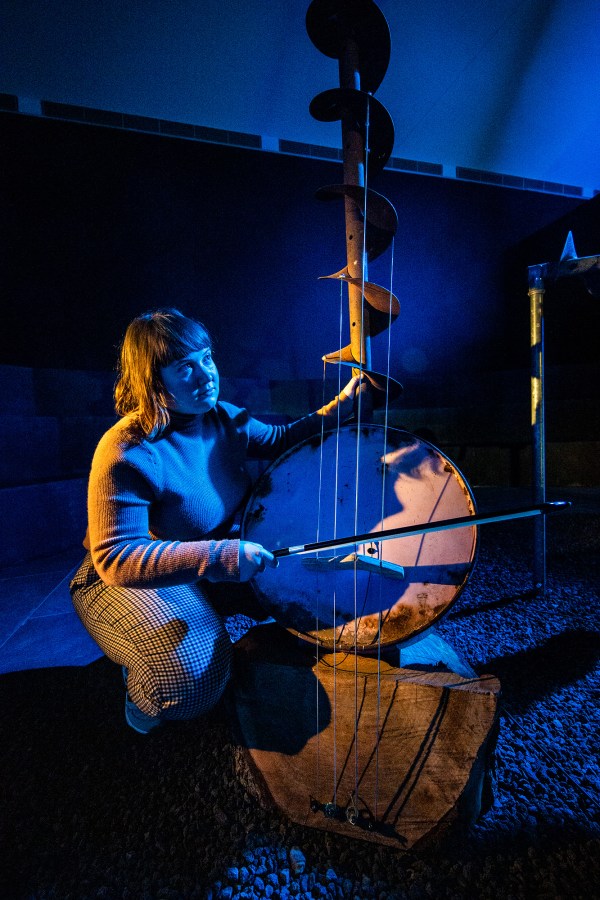
Georgia Oatley says the works musicality comes in its use of repetition
Although the launch date of the work was pushed back, this has, in a way, worked to its advantage.
The crescendo of Rio Tinto explosions and the COVID-19 crisis makes the work prescient, and also apocalyptic. If the curlew’s call signifies that death is near, we wonder if ‘Untitled (Death Song)’ is a warning that Australia as we know it might be coming to an end.
This is something Megan has also wondered.
“It’s been freaking me out,” Megan says.
“But as an artist, I’m really committed to truth-telling.”



